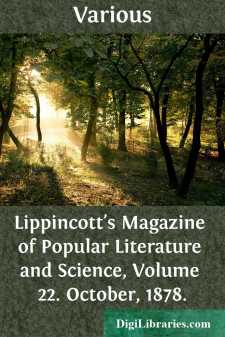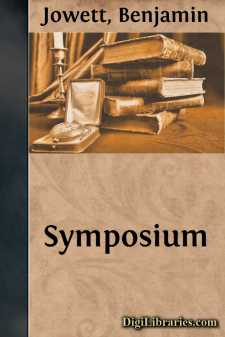Fiction
- Action & Adventure 180
- Biographical 15
- Christian 59
- Classics 6965
- Coming of Age 5
- Contemporary Women 3
- Erotica 8
- Espionage/Intrigue 12
- Fairy Tales, Folklore & Mythology 236
- Family Life 169
- Fantasy 117
- Gay 1
- General 596
- Ghost 32
- Historical 808
- Horror 43
- Humorous 160
- Jewish 25
- Legal 4
- Medical 22
- Mystery & Detective 315
- Political 49
- Psychological 41
- Religious 64
- Romance 159
- Sagas 11
- Science Fiction 730
- Sea Stories 113
- Short Stories (single author) 537
- Sports 10
- Suspense 1
- Technological 8
- Thrillers 2
- Urban Life 31
- Visionary & Metaphysical 1
- War & Military 173
- Westerns 199
Fiction Books
Sort by:
by:
Bernard Shaw
THE REVOLT AGAINST MARRIAGE There is no subject on which more dangerous nonsense is talked and thought than marriage. If the mischief stopped at talking and thinking it would be bad enough; but it goes further, into disastrous anarchical action. Because our marriage law is inhuman and unreasonable to the point of downright abomination, the bolder and more rebellious spirits form illicit unions,...
more...
by:
Various
WARWICK AND COVENTRY. OBLIQUE GABLES IN WARWICK.The history of England is written in living characters in the provincial towns of the kingdom; and it is this which gives such interest to places which have been surpassed commercially by great manufacturing centres and overshadowed socially by the attractions of London. The local nobility once held state little less than royal in houses whose beautiful...
more...
by:
Herman Melville
CHAPTER I.A MUTE GOES ABOARD A BOAT ON THE MISSISSIPPI. At sunrise on a first of April, there appeared, suddenly as Manco Capac at the lake Titicaca, a man in cream-colors, at the water-side in the city of St. Louis. His cheek was fair, his chin downy, his hair flaxen, his hat a white fur one, with a long fleecy nap. He had neither trunk, valise, carpet-bag, nor parcel. No porter followed him. He was...
more...
by:
Hal K. Wells
It was shortly after midnight when a persistent nightmare aroused Don Foster from sleep. For a moment he lay drowsily in his blankets there on the sand, with memory of the nightmare still vivid. It had been a monstrous flying thing like a giant blue-bottle fly that he had been battling in his sleep. Memory of the thing's high-pitched, droning buzz still rang in his ears. Then abruptly he realized...
more...
Copyright, 1898, by William Henry Harrison Murray It was at the battle of Malvern Hill—a battle where the carnage was more frightful, as it seems to me, than in any this side of the Alleghanies during the whole war—that my story must begin. I was then serving as Major in the —th Massachusetts Regiment—the old —th, as we used to call it—and a bloody time the boys had of it too. About 2 p. m....
more...
by:
Anonymous
JEMMY STUBBINS, OR THE NAILER BOY. Before I left America in 1846, in order to gratify the wish that had long occupied my heart, of visiting the motherland, I formed for myself a plan of procedure to which I hoped to be able rigidly to adhere. I determined that my visit to England should bring me face to face with the people; that I should converse with the artizan in his workshop, and lifting the lowly...
more...
by:
Benjamin Jowett
INTRODUCTION. After an interval of some months or years, and at Phlius, a town of Peloponnesus, the tale of the last hours of Socrates is narrated to Echecrates and other Phliasians by Phaedo the 'beloved disciple.' The Dialogue necessarily takes the form of a narrative, because Socrates has to be described acting as well as speaking. The minutest particulars of the event are interesting to...
more...
THE DIVERTING HISTORY OF JOHN GILPIN: Showing how he went farther than he intended, and came safe home again. John Gilpin was a citizen Of credit and renown, A train-band captain eke was he, Of famous London town. John Gilpin's spouse said to her dear, "Though wedded we have been These twice ten tedious years, yet we No holiday have seen. "To-morrow is our wedding-day, And we will then...
more...
by:
Benjamin Jowett
INTRODUCTION. Of all the works of Plato the Symposium is the most perfect in form, and may be truly thought to contain more than any commentator has ever dreamed of; or, as Goethe said of one of his own writings, more than the author himself knew. For in philosophy as in prophecy glimpses of the future may often be conveyed in words which could hardly have been understood or interpreted at the time...
more...
by:
Randall Garrett
“And that,” said Colonel Fennister glumly, “appears to be that.” The pile of glowing coals that had been Storage Shed Number One was still sending up tongues of flame, but they were nothing compared with what they’d been half an hour before. “The smoke smells good, anyway,” said Major Grodski, sniffing appreciatively. The colonel turned his head and glowered at his adjutant. “There are...
more...











